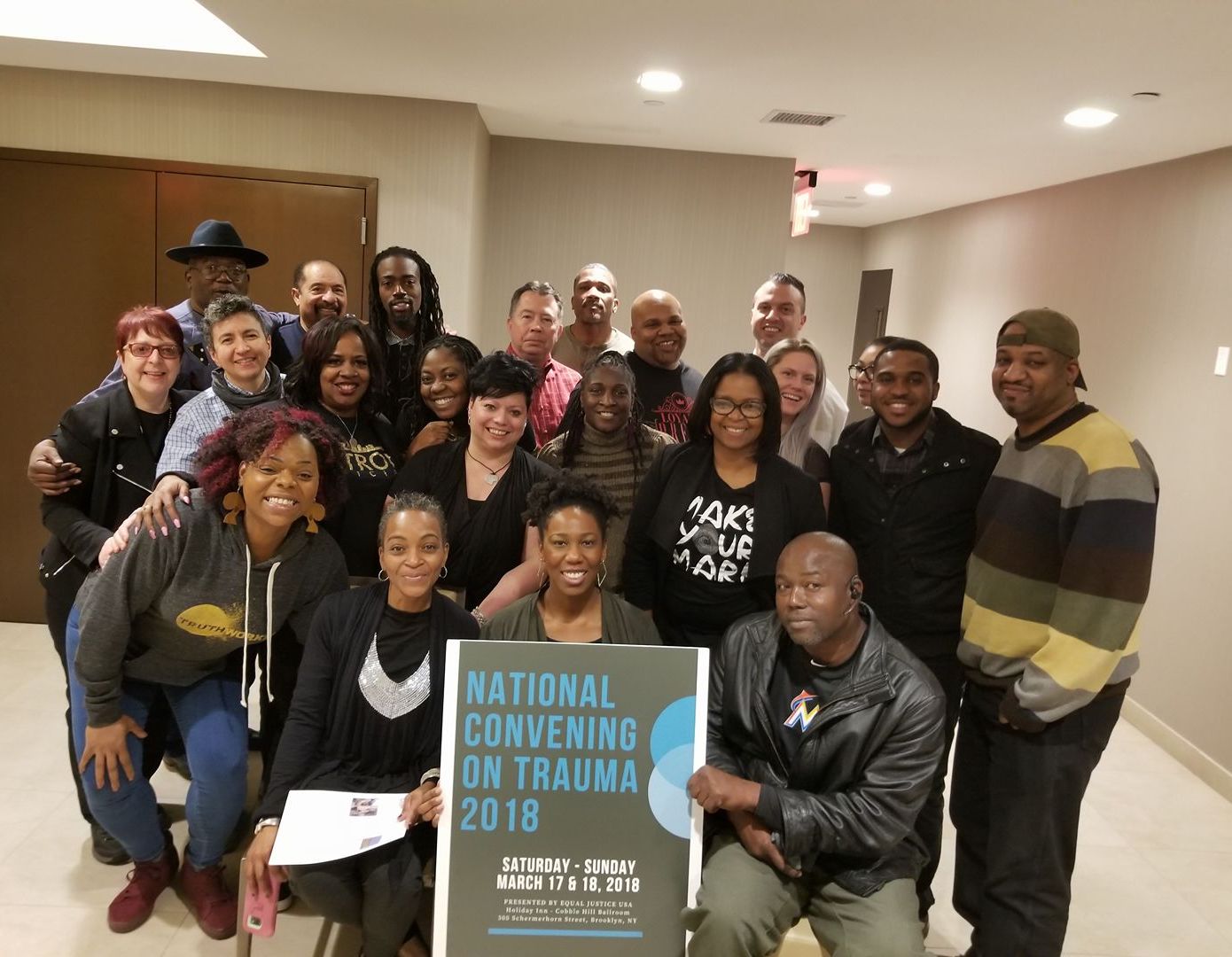
EJUSA has taken a big step toward building a national network of people impacted by trauma across the criminal justice system by hosting our first convening in mid-March.
Twenty-four leaders came together – traveling from all over the country – for two days of sharing, healing, learning, and planning. They included crime survivors, people who were formerly incarcerated, families of the incarcerated, and law enforcement. All of the participants have worked alongside EJUSA at some point: as advocates within our death penalty work, as leaders of grassroots violence intervention and survivor organizations that EJUSA supported in capacity building, or as participants in our Police-Community Trauma Program in Newark.
The convening prioritized intersectionality – crime survivors who had family members incarcerated, law enforcement officers who are also crime survivors, formerly incarcerated people who were crime survivors, etc. Their experiences are a springboard for shattering myths about the silos that our system breaks people into and the racist narratives about who gets harmed, how, and who is worth of healing.
“This is the first time I’ve ever been able to identify as a survivor,” said one participant who was formerly incarcerated and now works in violence intervention. “This has been healing for me.”
Another participant – a corrections officer – shared that his experience at the convening helped him understand restorative accountability for the first time.
Potential collaborations unfolded as people heard about each others’ work and promised support. Many left with ideas for how to engage EJUSA more in their work locally, as well as participate in our national work to change narratives about violence and accountability.
We are excited to begin mobilizing this new community of thought leaders who can speak to the trauma in the criminal justice system and to promote responses to violence to that break the cycle of trauma. EJUSA envisions a world where violence is rare and every community is safe and healthy. True justice is healing and our network is taking leadership to make that happen.
Photo credit: Ray Winans



